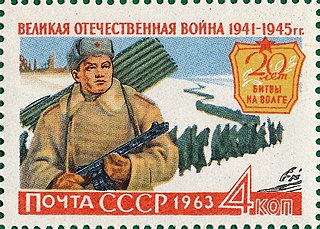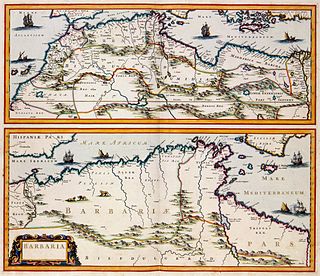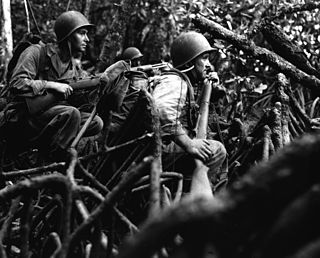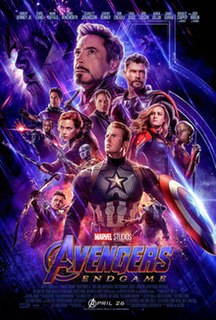
The American Civil War was a war fought in the United States from 1861 to 1865, between the North and the South. The Civil War is the most studied and written about episode in U.S. history. Primarily as a result of the long-standing controversy over the enslavement of black people, war broke out in April 1861 when secessionist forces attacked Fort Sumter in South Carolina shortly after Abraham Lincoln had been inaugurated as the President of the United States. The loyalists of the Union in the North proclaimed support for the Constitution. They faced secessionists of the Confederate States in the South, who advocated for states' rights to uphold slavery.

Hirohito was the 124th Emperor of Japan according to the traditional order of succession, reigning from 25 December 1926, until his death on 7 January 1989. He was succeeded by his eldest son, Akihito. In Japan, reigning emperors are known simply as "the Emperor" and he is now referred to primarily by his posthumous name, Emperor Shōwa (昭和天皇). The word Shōwa (昭和) is the name of the era coinciding with the Emperor's reign, after which he is known according to a tradition dating to 1912. The name Hirohito means "abundant benevolence".

The Korean War was a war between North Korea and South Korea. The war began on 25 June 1950 when North Korea invaded South Korea following a series of clashes along the border.

Star Wars is an American epic space opera media franchise created by George Lucas. The franchise began with the eponymous 1977 movie and quickly became a worldwide pop-culture phenomenon.

Darth Vader is a fictional character in the Star Wars franchise. He is a primary antagonist in the original trilogy, but, as Anakin Skywalker, is the main protagonist of the prequel trilogy. Star Wars creator George Lucas has collectively referred to the first six episodic films of the franchise as "the tragedy of Darth Vader."

Kaijū is a Japanese film genre that features giant monsters, usually attacking major cities and engaging the military and other monsters in battle. It is a subgenre of tokusatsu entertainment. This word originated from the Chinese Classic of Mountains and Seas. In Legendary Pictures' modern MonsterVerse, the in-universe organization Monarch refers to Kaiju as "Titans".

The Great Patriotic War is a term used in Russia and other former republics of the Soviet Union to describe the conflict fought during the period from 22 June 1941 to 9 May 1945 along the many fronts of the Eastern Front of World War II between the Soviet Union and Nazi Germany and its allies. For some legal purposes its period might be extended to 11 May 1945 to also include the end of the Prague Offensive.

The term Barbary Coast was used by Europeans from the 16th century to the early 19th to refer to the coastal regions of North Africa inhabited by Berber people. Today this land is part of the modern nations of Morocco, Algeria, Tunisia and Libya.
In fiction, canon is the material accepted as officially part of the story in the fictional universe of that story. It is often contrasted with, or used as the basis for, works of fan fiction. The alternative terms mythology, timeline, universe and continuity are often used, with the first of these being used especially to refer to a richly detailed fictional canon requiring a large degree of suspension of disbelief, while the latter two typically refer to a single arc where all events are directly connected chronologically. Other times, the word can mean "to be acknowledged by the creator(s)".
The most common name for the American Civil War in modern American usage is simply "The Civil War." Although used rarely during the war, the term "War Between the States" became widespread afterward in the Southern United States. During and immediately after the war, historians often used the term "War of the Rebellion" or "Great Rebellion," while the Confederate term was "War for Southern Independence." The latter regained some currency in the 20th century, but has again fallen out of use. Also in the 20th century, the term "War of Northern Aggression" developed under the Lost Cause of the Confederacy movement by Southern history revisionists, with attempts to negatively re-imagine the American Civil War narrative and preserve Confederate legacy. "Freedom War" is used to celebrate the effect the war had on ending slavery. In several European languages, the war is called "War of Secession." In most East Asian languages, the war is called "Battle between North and South side of the United States" or more commonly as "American (U.S.) North–South War," depending on the individual language.

G.I. are initials used to describe the soldiers of the United States Army and airmen of the United States Army Air Forces and also for general items of their equipment. The term G.I. has been used as an initialism of "Government Issue" or "General Issue", but it originally referred to "galvanized iron", as used by the logistics services of the United States Armed Forces.

The Irish Republican Army (IRA) are paramilitary movements in Ireland in the 20th and the 21st century dedicated to Irish republicanism, the belief that all of Ireland should be an independent republic from British rule and free to form their own government. The original Irish Republican Army formed in 1917 from those Irish Volunteers who did not enlist in the British Army during World War I, members of the Irish Citizen Army and others. Irishmen formerly in the British Army returned to Ireland and fought in the Irish War of Independence. During the Irish War of Independence it was the army of the Irish Republic, declared by Dáil Éireann in 1919. Some Irish people dispute the claims of more recently created organisations that insist that they are the only legitimate descendants of the original IRA, often referred to as the "Old IRA". The playwright and former IRA member Brendan Behan once said that the first issue on any Irish organisation's agenda was "the split". For the IRA, that has often been the case. The first split came after the Anglo-Irish Treaty in 1921, with supporters of the Treaty forming the nucleus of the National Army of the newly created Irish Free State, while the anti-treaty forces continued to use the name Irish Republican Army. After the end of the Irish Civil War (1922–23), the IRA was around in one form or another for forty years, when it split into the Official IRA and the Provisional IRA in 1969. The latter then had its own breakaways, namely the Real IRA and the Continuity IRA, each claiming to be the true successor of the Army of the Irish Republic.
A cold war is a state of conflict between nations that does not involve direct military action but is pursued primarily through economic and political actions, propaganda, acts of espionage or proxy wars waged by surrogates. This term is most commonly used to refer to the Soviet-American Cold War. The surrogates are typically states that are "satellites" of the conflicting nations, i.e., nations allied to them or under their political influence. Opponents in a cold war will often provide economic or military aid, such as weapons, tactical support or military advisors, to lesser nations involved in conflicts with the opposing country.

Canada is a country in the northern part of North America. Its ten provinces and three territories extend from the Atlantic to the Pacific and northward into the Arctic Ocean, covering 9.98 million square kilometres, making it the world's second-largest country by total area. Canada's southern border with the United States is the world's longest bi-national land border. Its capital is Ottawa, and its three largest metropolitan areas are Toronto, Montreal, and Vancouver. As a whole, Canada is sparsely populated, the majority of its land area being dominated by forest and tundra. Consequently, its population is highly urbanized, with over 80 percent of its inhabitants concentrated in large and medium-sized cities, many near the southern border. Canada's climate varies widely across its vast area, ranging from arctic weather in the north, to hot summers in the southern regions, with four distinct seasons.

Captain America: Civil War is a 2016 American superhero film based on the Marvel Comics character Captain America, produced by Marvel Studios and distributed by Walt Disney Studios Motion Pictures. It is the sequel to 2011's Captain America: The First Avenger and 2014's Captain America: The Winter Soldier, and the thirteenth film in the Marvel Cinematic Universe (MCU). The film is directed by Anthony and Joe Russo, with a screenplay by the writing team of Christopher Markus and Stephen McFeely, and stars Chris Evans as Steve Rogers / Captain America, alongside an ensemble cast including Robert Downey Jr., Scarlett Johansson, Sebastian Stan, Anthony Mackie, Don Cheadle, Jeremy Renner, Chadwick Boseman, Paul Bettany, Elizabeth Olsen, Paul Rudd, Emily VanCamp, Tom Holland, Frank Grillo, William Hurt, and Daniel Brühl. In Captain America: Civil War, disagreement over international oversight of the Avengers fractures them into opposing factions—one led by Steve Rogers and the other by Tony Stark.
Cold War II is a popular term for the ongoing state of political and military tension between opposing geopolitical power-blocs, with one bloc typically reported as being led by Russia and the other led by the United States, European Union, and NATO. It is akin to the original Cold War that saw a stand-off and proxy wars between the Western Bloc led by the United States, and the Eastern Bloc led by the Soviet Union, Russia's predecessor. It may also refer to growing tensions between the United States and China.

Avengers: Infinity War is a 2018 American superhero film based on the Marvel Comics superhero team the Avengers, produced by Marvel Studios and distributed by Walt Disney Studios Motion Pictures. It is the sequel to 2012's The Avengers and 2015's Avengers: Age of Ultron, and the nineteenth film in the Marvel Cinematic Universe (MCU). The film is directed by Anthony and Joe Russo, written by Christopher Markus and Stephen McFeely, and features an ensemble cast including Robert Downey Jr., Chris Hemsworth, Mark Ruffalo, Chris Evans, Scarlett Johansson, Benedict Cumberbatch, Don Cheadle, Tom Holland, Chadwick Boseman, Paul Bettany, Elizabeth Olsen, Anthony Mackie, Sebastian Stan, Danai Gurira, Letitia Wright, Dave Bautista, Zoe Saldana, Josh Brolin, and Chris Pratt. In the film, the Avengers and the Guardians of the Galaxy attempt to stop Thanos from amassing the all-powerful Infinity Stones.

Avengers: Endgame is an upcoming American superhero film based on the Marvel Comics superhero team the Avengers, produced by Marvel Studios and set for distribution by Walt Disney Studios Motion Pictures. It is the direct sequel to 2018's Avengers: Infinity War, a sequel to 2012's Marvel's The Avengers and 2015's Avengers: Age of Ultron, and the 22nd film in the Marvel Cinematic Universe (MCU). The film is directed by Anthony and Joe Russo with a screenplay by Christopher Markus and Stephen McFeely and features an ensemble cast including Robert Downey Jr., Chris Evans, Mark Ruffalo, Chris Hemsworth, Scarlett Johansson, Jeremy Renner, Don Cheadle, Paul Rudd, Brie Larson, Karen Gillan, Danai Gurira, Bradley Cooper, and Josh Brolin. In the film, the surviving members of the Avengers and their allies work to reverse the damage caused by Thanos in Infinity War.
















